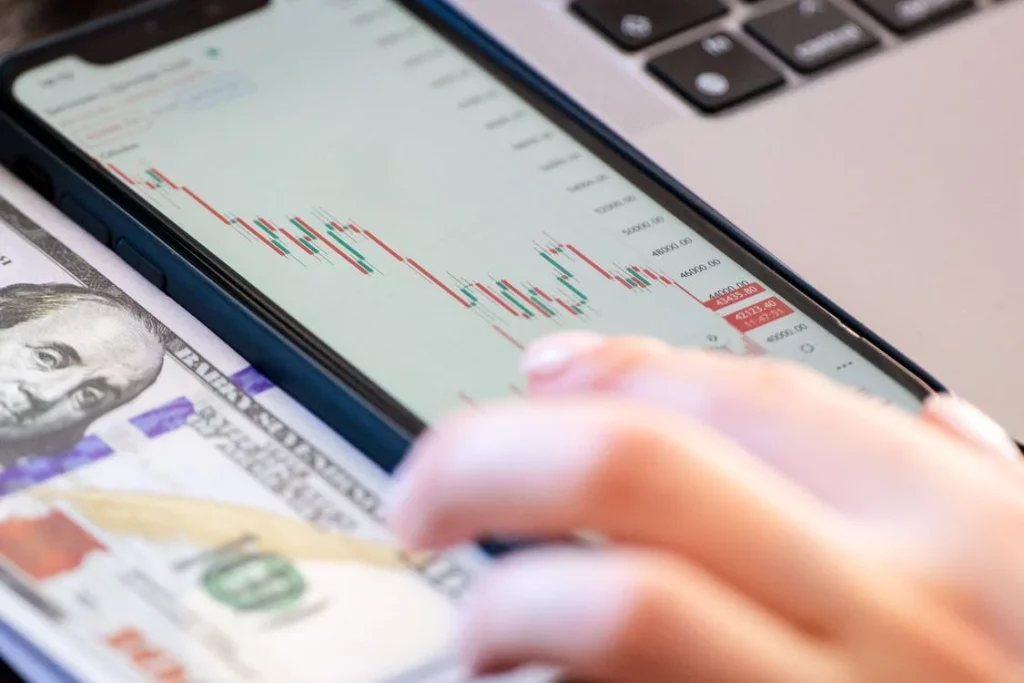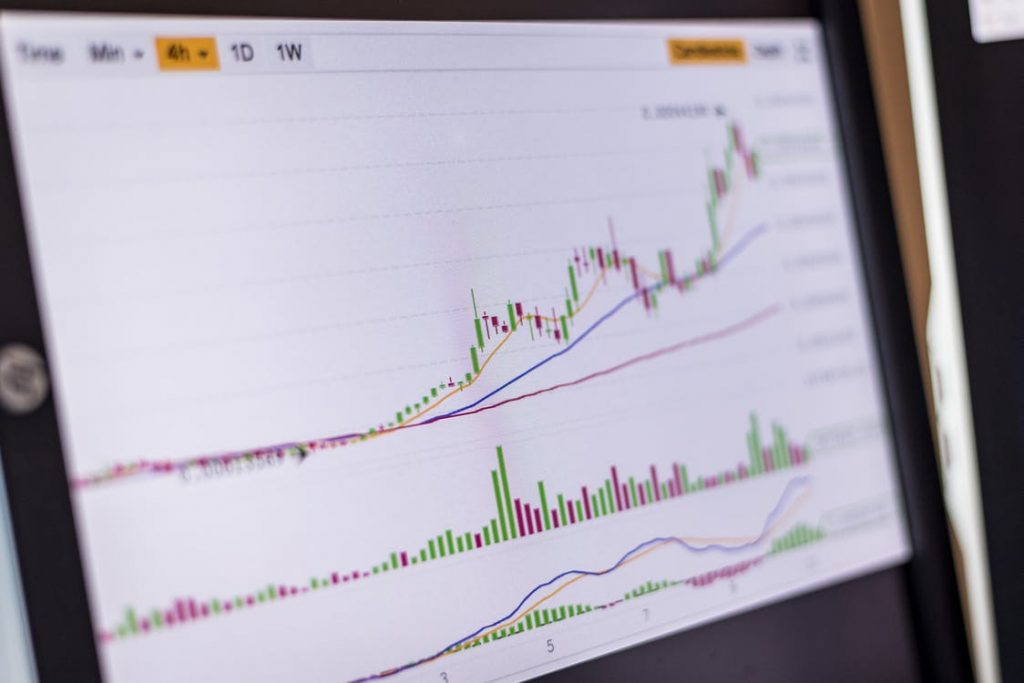Spot Trading
Spot trading is the purchase or sale of an asset that is executed and settled immediately. The best online brokers offer spot trading on multiple markets, including stocks, forex and cryptos. This guide for beginners covers the simple definition and meaning of spot trading, tips for choosing the right platform and more.
Understanding Spot Trading
Spot trading refers to the purchase or sale of a financial asset that is exchanged instantly. In many cases, this means the physical delivery of an asset, such as gold, to the buyer. It differs from non-spot trading where a price may be agreed but the actual delivery takes place at a different time.
The current price of an asset is known as the spot price. This represents current supply and demand with prices increasing as demand and trading volumes rise. Traders generally aim to buy low and sell high, or vice versa, depending on whether they go short or long.
But while individual investors can profit from spot trading, it is often companies that benefit the most. If a firm needs gold in line with its manufacturing requirements, it can purchase it that day. Large energy trading companies, including in Dubai, often sell excess energy on the spot market. The switched-on investor will spot patterns in when firms buy and sell assets at regular intervals.

Note, spot trading tax treatment varies depending on the jurisdiction, including in the US, India and Romania. In the UK, for example, profits are subject to capital gains tax (CGT). Consult a professional tax advisor if you are unclear on the requirements in your country.
Example Explained
Spot trading is best understood with an example. Let’s assume you want to purchase a cryptocurrency, such as Bitcoin. You have selected an exchange that allows you to purchase the BTC/USD pair, like Binance. When you arrive at the platform, you are given two options: spot trading vs futures trading, with two different prices.
If you opt for the spot price, you can purchase 0.5 BTC right now for $18,950. Alternatively, you could purchase it at a futures price of $19,500, and receive 0.5 BTC in one month. The difference of $550 between the two prices shows that the exchange believes the price of Bitcoin will increase.
You opt for the spot trade and purchase 0.5 BTC. Once the seller has confirmed the deal and accepted it, you will receive the crypto in your digital wallet. Once received, all you have to do is wait for Bitcoin’s value to increase. Your potential profit is the increase in value since you bought the coin.
Note, had you gone for a different asset, like gold, it would typically take two days to be delivered.
Assets
Spot trading can be carried out in almost any market. The most popular options for swing traders are forex pairs, stocks and shares, commodities like gold and indices like the Nifty. Of course, assets may be subject to different rules. On Binance for example, you are free to spot trade crypto, while on IG, you will have to purchase CFDs so that you do not own the underlying asset.
Spot Markets
There are two main types of spot market systems. The first is an over-the-counter (OTC) market. Here, assets are not traded on a formal exchange, like the London Stock Exchange (LSE). There is no third-party supervisor – buyers and sellers meet and agree to a trade themselves. As such, there is more flexibility over prices, which do not need to be published.
The second type is a market exchange. This is an organized market, such as the New York Stock Exchange (NYSE). Tight regulations and rules help promote a fair and transparent trading environment, with more control over prices and publicly available information.
Comparing Spot Trading Brokers
We have compiled a list of pointers to help you find the best brokers:
- Executions: The best spot trading brokers offer instant executions. A delay of seconds can reduce profit margins and even lead to losses.
- Liquidity: Brokers with high trading volumes will be more likely to find a buyer if you’re selling and vice versa. This often means cheaper fees and hassle-free investing.
- Fees: Brokers will have different trading fees, some of which will vary by asset. Minimum deposit and trade amounts can also vary, so aim to find a broker that offers a pricing schedule that suits your budget.
- Assets: Brokers specialize in different products. If you know what you want to trade, for example, major forex pairs, make sure your company and provider accommodate this.
- Research: Research and analysis will play a key part when deciding which spot trades to make. So ensure your broker has suitable tools available. Compare the different technical indicators, charts and alerts that you can set up.
- Customer support: Reliable customer service will help ensure any issues are solved quickly and efficiently. Check the opening hours as well as the different contact methods available. These can include text, email, phone, live chat and social media.
Getting Started
Follow this guide to start spot trading:
- First, pick a market that you want to trade. Compare forex, cryptos, stocks and other assets to find the best fit for your needs.
- Next, choose a broker to trade with. Use our comparison points to find a platform or app that offers the best overall package.
- Once you are signed up to a broker, conduct market research. You can use technical indicators and charts to find opportunities or you can turn to economic calendars and market sentiment tools.
- Now you are ready to open a position. Use a profit calculator to understand how much you could make or lose. Also utilize stop loss and take profit orders to keep a handle on your risk exposure.
- With the trade placed, simply monitor the position. When you are ready or your risk alerts are triggered, close the trade and claim your profit.
Benefits
The main advantages of spot trading include:
- Easy to understand for beginners
- Similar vs P2P trading
- Less liquidation risk
- Instant settlement
- Real-time prices
- High liquidity
- Fixed risk
- Flexibility
Drawbacks
There are also some disadvantages to spot trading:
- Less pricing transparency with OTC markets
- High volatility can lead to losses
- Less leveraged trading opportunities
Spot Trading Vs Margin Trading
Deciding between spot or margin trading is often a key consideration for beginners starting out. When margin trading, you are trading with leverage. This means you borrow funds from a third party, usually your broker, and you do not need the entire trade amount to open a position. The main advantage is that you can increase the amount of profit you can make. This comes at the cost of increased risk, though, as losses are also amplified.
With spot trading, on the other hand, you execute trades immediately at the specified price. You do not normally borrow money and must have the exact amount of capital or assets available to open a trade. While this means you may not earn as much profit, it also means your risk exposure is limited to what you currently have available.
Spot Trading Vs Futures Trading
Spot trading and futures trading offer their own distinct advantages. When you purchase a futures contract, you agree to buy a set amount of an asset at a specified price on a date in the future. This is used by many businesses to protect against price fluctuations thereby ensuring increased price certainty for their manufacturing branch, for example. Swing traders can also use futures contracts to profit off potential price movements. Importantly, you do not own the asset, for example gold, until the deal is settled on the specified date.
Spot trading, on the other hand, involves the purchasing of a set amount of an asset at a specified price, on that day. The trade is executed instantly, and delivery is usually received within two days. This means less flexibility for both retail investors and businesses.

Spot Trading Tips
Use these tips for trading dummies and beginners when you get started:
Practise
Before you start spot trading on live markets, sign up for a demo account. This is the perfect place to practise trading. On a paper trading account, you do not risk real capital. Instead, you trade with virtual money, allowing you to get used to markets, brokers and platforms, as well as trying out any strategies and techniques.
Join Communities
Many investors are spot trading every day and sharing their experiences online. This knowledge can help guide your own decisions, showing you things that have worked for other traders and things that have failed. Join online forums, Telegram channels, Discord pages and more to hear real stories from active traders.
Bots & Signals
If you do not have the time to spot trade consistently, you could look to a trading bot. These programs will automatically carry out trades for you and will implement a strategy of your design or choosing. Equally, you could subscribe to a signals service. This will notify you of trades with profit potential and allow you to place them yourself, saving you time spent researching various options.
Bottom Line on Spot Trading
Spot trading is easy to understand, making it popular with many beginners. While experienced investors may be deterred by reduced margin opportunities, newer traders benefit from upfront risk and straightforward access to popular financial markets, including stocks, forex, commodities and cryptocurrencies. If you want to start spot trading today, use our tutorial to find the right broker for your needs.
FAQ
Is Spot Trading Halal Or Haram?
In Islam, spot trading is considered halal by some scholars if you can settle and exchange goods within a specified period. Consult a local religious leader for tailored guidance.
What Is A Spot Trading Fee?
The fee is the rate you must pay for every successful trade. Fees vary at different brokers and exchanges so compare prices before opening a live account.
Is Spot Trading Good?
Spot trading is easy to understand, making it popular with beginners. As you do not typically trade with leverage, there is less risk of amplified losses, however, it does limit your profit potential. Whether it is right for you is down to personal preference.
When Can I Spot Trade?
Spot trading is available at different times, depending on the asset you are interested in. You can spot trade crypto 24/7, for example, while stocks will be available during their respective exchange’s opening hours.
Is A Spot Trade The Same As Instant Buy?
Spot trading is not the same as an instant buy. With instant buy, you purchase or sell assets from your broker. With spot trading, you buy or sell from other traders.
